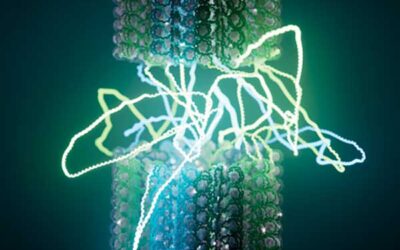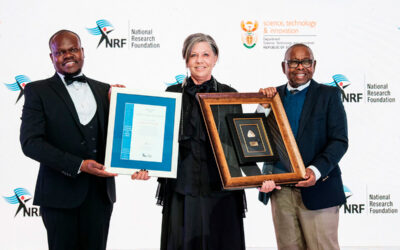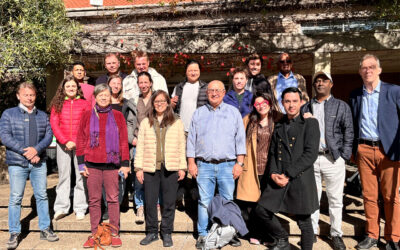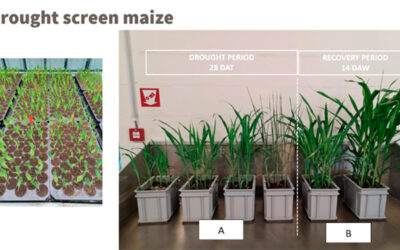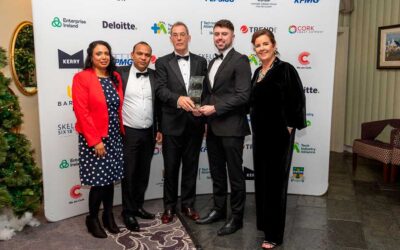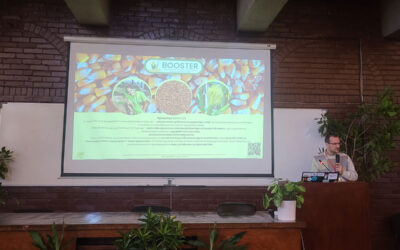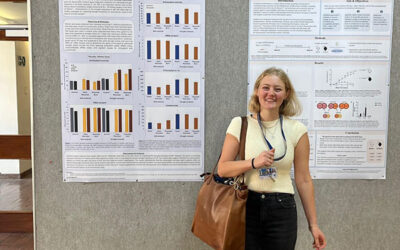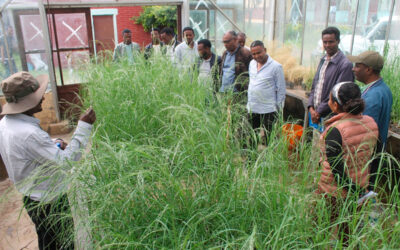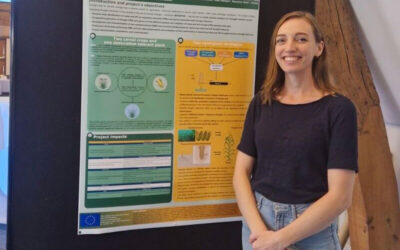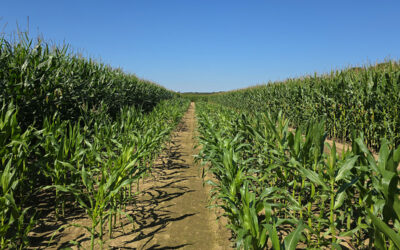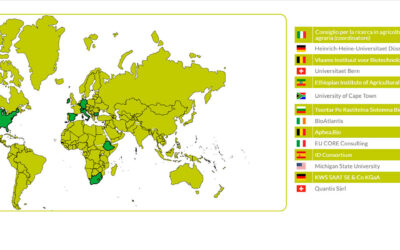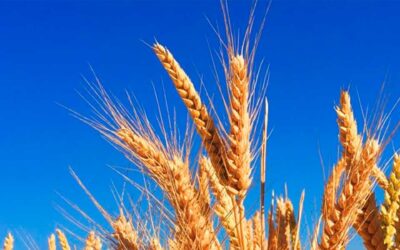NEWS
Here you can find all the news related to the Booster project
A major milestone for the BOOSTER project was recently achieved through the publication of a landmark study in Nature Genetics, led by BOOSTER partner Professors Thomas Hartwig and Julia Engelhorn from Heinrich Heine University Düsseldorf. The BOOSTER consortium is proud to celebrate Professor Jill Farrant, from the University of Cape Town (UCT), who has been honoured with the Lifetime Achievement Award at the 2025 National Research Foundation (NRF) Awards. Representatives from BOOSTER partners met at the University of Cape Town from 3–5 June 2025 to present achievements, tackle upcoming challenges, and reinforce collaboration. BOOSTER is setting an example in global research collaboration by aligning its scientific work with biodiversity conservation and benefit-sharing principles. Through rigorous greenhouse screening and validation protocols, Aphea.Bio has identified promising microbial biostimulants that significantly enhance drought tolerance in maize. BOOSTER project is pioneering molecular priming technologies to enhance climate resilience in maize and teff, receiving industry recognition. The BOOSTER project has made significant strides in 2024, with various activities organized by consortium partner CPSBB that have showcased the project’s impact. The University of Cape Town (UCT), a partner in the BOOSTER project, recently expanded its outreach and knowledge-sharing efforts with South African institutions, particularly focusing on the potential of drought-resilient crops. The BOOSTER project recently held key meetings to review progress, address challenges, and showcase innovative trials to enhance tef’s drought tolerance through genomics and plant growth-promoting Rhizobacteria, bringing together researchers, officials, and industry stakeholders. The BOOSTER project continues its mission to advance agricultural research, with contributions to high-profile scientific events, like European Maize Meeting.
State-of-the-art BOOSTER study maps genetic control of maize traits through regulatory DNA variation
Professor Jill Farrant receives Lifetime Achievement Award at 2025 NRF Awards, reinforcing UCT’s leadership within the BOOSTER project
BOOSTER consortium gathers in Cape Town to review progress and plan ahead
BOOSTER project promotes responsible research by ensuring ethical use and fair sharing of genetic resources
Aphea.Bio leads the way to innovative microbial solutions for drought-resilient crops
BOOSTER Project and BioAtlantis advance climate-resilient agriculture with cutting-edge research and recognition
CPSBB’s strategic contributions drive BOOSTER’s outreach growth in 2024
University of Cape Town drives BOOSTER project forward through guest lectures and collaborative research initiatives
BOOSTER project advances tef drought resilience
Booster partner VIB highlights innovations in sustainable agriculture at European Maize Meeting and webinar on Rhizobia biostimulants
A major milestone for the BOOSTER project was recently achieved through the publication of a landmark study in Nature Genetics, led by BOOSTER partner Professors Thomas Hartwig and Julia Engelhorn from Heinrich Heine University Düsseldorf. The BOOSTER consortium is proud to celebrate Professor Jill Farrant, from the University of Cape Town (UCT), who has been honoured with the Lifetime Achievement Award at the 2025 National Research Foundation (NRF) Awards. Representatives from BOOSTER partners met at the University of Cape Town from 3–5 June 2025 to present achievements, tackle upcoming challenges, and reinforce collaboration. BOOSTER is setting an example in global research collaboration by aligning its scientific work with biodiversity conservation and benefit-sharing principles. Through rigorous greenhouse screening and validation protocols, Aphea.Bio has identified promising microbial biostimulants that significantly enhance drought tolerance in maize. BOOSTER project is pioneering molecular priming technologies to enhance climate resilience in maize and teff, receiving industry recognition. The BOOSTER project has made significant strides in 2024, with various activities organized by consortium partner CPSBB that have showcased the project’s impact. The BOOSTER project recently held key meetings to review progress, address challenges, and showcase innovative trials to enhance tef’s drought tolerance through genomics and plant growth-promoting Rhizobacteria, bringing together researchers, officials, and industry stakeholders. The BOOSTER project continues its mission to advance agricultural research, with contributions to high-profile scientific events, like European Maize Meeting. By leveraging productive meetings, strategic collaborations, innovative fieldwork in hybrid maize, and upcoming advancements in molecular techniques.
State-of-the-art BOOSTER study maps genetic control of maize traits through regulatory DNA variation
Professor Jill Farrant receives Lifetime Achievement Award at 2025 NRF Awards, reinforcing UCT’s leadership within the BOOSTER project
BOOSTER consortium gathers in Cape Town to review progress and plan ahead
BOOSTER project promotes responsible research by ensuring ethical use and fair sharing of genetic resources
Aphea.Bio leads the way to innovative microbial solutions for drought-resilient crops
BOOSTER Project and BioAtlantis advance climate-resilient agriculture with cutting-edge research and recognition
CPSBB’s strategic contributions drive BOOSTER’s outreach growth in 2024
BOOSTER project advances tef drought resilience
Booster partner VIB highlights innovations in sustainable agriculture at European Maize Meeting and webinar on Rhizobia biostimulants
Pioneering breakthroughs in crop science through collaboration and innovation
Il CREA al coordinamento del progetto Horizon Europe (BOOSTER – Boosting drought tolerance in key cereals in the era of climate change) per il miglioramento della tolleranza alla siccità dei cereali. Migliorare la tolleranza alla siccità del mais e del teff, un cereale poco conosciuto in Italia, dalle elevate proprietà benefiche, facilmente digeribile e molto adatto per la dieta dei soggetti affetti da celiachia e diabete.
Strategie innovative per aumentare la resilienza dei cereali ai cambiamenti climatici
Siccità: dalla ricerca CREA, innovazioni per cereali più resistenti

